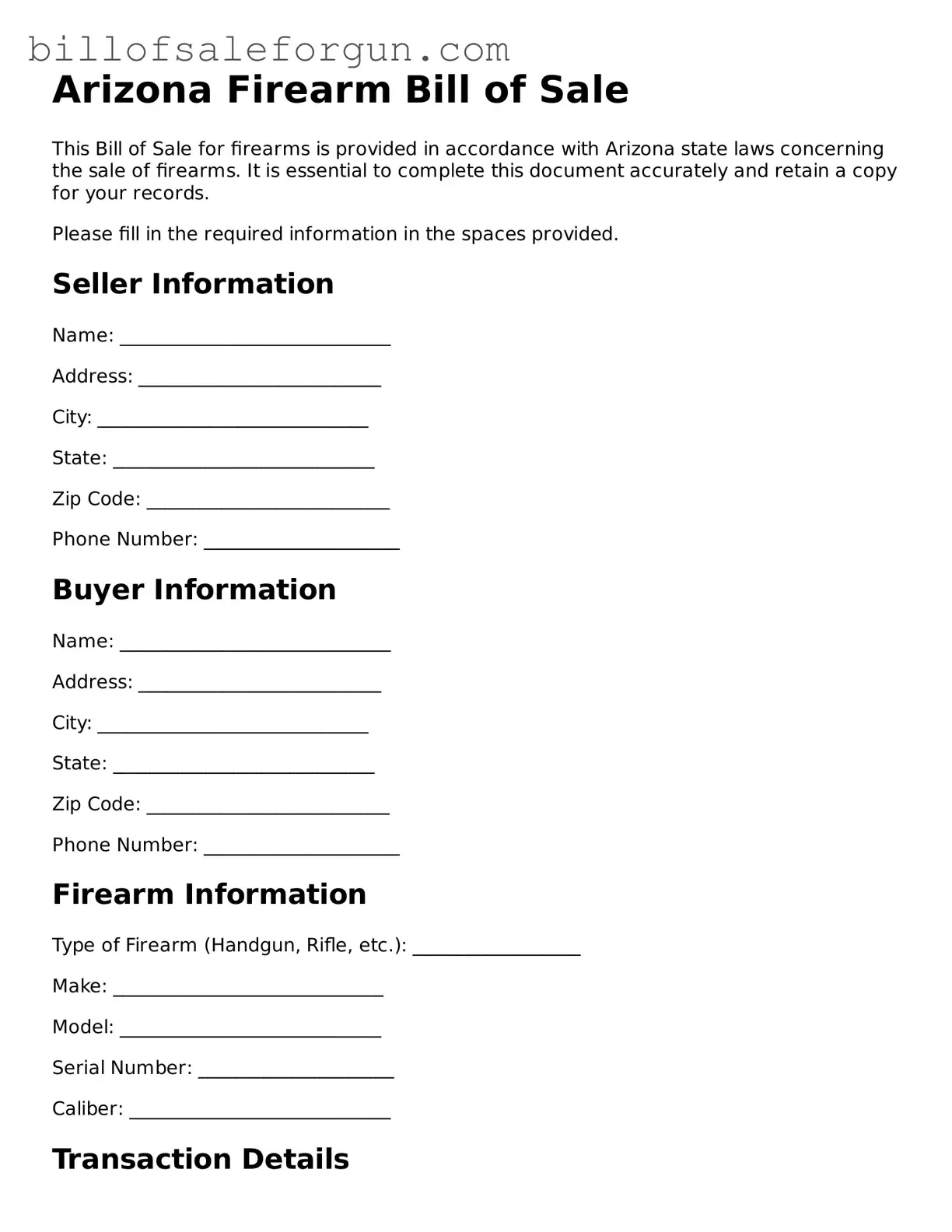Similar forms
The Arizona Firearm Bill of Sale form is similar to a Vehicle Bill of Sale. Both documents serve as proof of transfer of ownership. When you sell or buy a vehicle, a Bill of Sale provides essential details such as the buyer's and seller's information, a description of the vehicle, and the sale price. This document can protect both parties by documenting the transaction and clarifying any potential disputes regarding ownership in the future. Just as with firearms, having a clear record of the vehicle sale can be crucial in case of accidents or legal inquiries.
Another document akin to the Firearm Bill of Sale is the Personal Property Bill of Sale. This form is used for the sale of various personal items, ranging from furniture to electronics. Like the firearm sale document, it includes information about the buyer and seller, a description of the item, and the sale price. This ensures that both parties have a record of the transaction, which can be helpful if any issues arise later. The emphasis on clear ownership transfer is a common thread between these documents.
The Lease Agreement shares similarities with the Firearm Bill of Sale in terms of its purpose of documenting an agreement between two parties. While a Lease Agreement outlines the terms of renting property, it also includes essential details such as the names of the landlord and tenant, the property description, and the rental amount. Both documents protect the rights of the involved parties and provide a written record to refer back to if disputes arise, ensuring clarity in ownership or rental arrangements.
For those interested in securing their healthcare preferences, understanding the intricacies of a Medical Power of Attorney form is essential. This important document enables you to empower someone to make medical decisions on your behalf. To learn more about how this can impact your healthcare, consider exploring this vital Medical Power of Attorney resource.
A Sales Receipt is another document that parallels the Firearm Bill of Sale. When you purchase goods, a Sales Receipt serves as proof of the transaction. It typically contains the seller’s and buyer’s information, the item description, and the purchase price. Similar to the Firearm Bill of Sale, a Sales Receipt can help resolve disputes about ownership or payment, reinforcing the importance of having a documented record of the transaction.
Lastly, the Gift Receipt can be compared to the Firearm Bill of Sale when a firearm is gifted rather than sold. A Gift Receipt records the transfer of ownership without a monetary exchange, detailing the giver and receiver's names and the item being gifted. While it may lack the sale price, it still serves as a formal acknowledgment of the transfer. Both documents ensure clarity in ownership and help avoid misunderstandings about the item's status, whether it was purchased or given as a gift.
